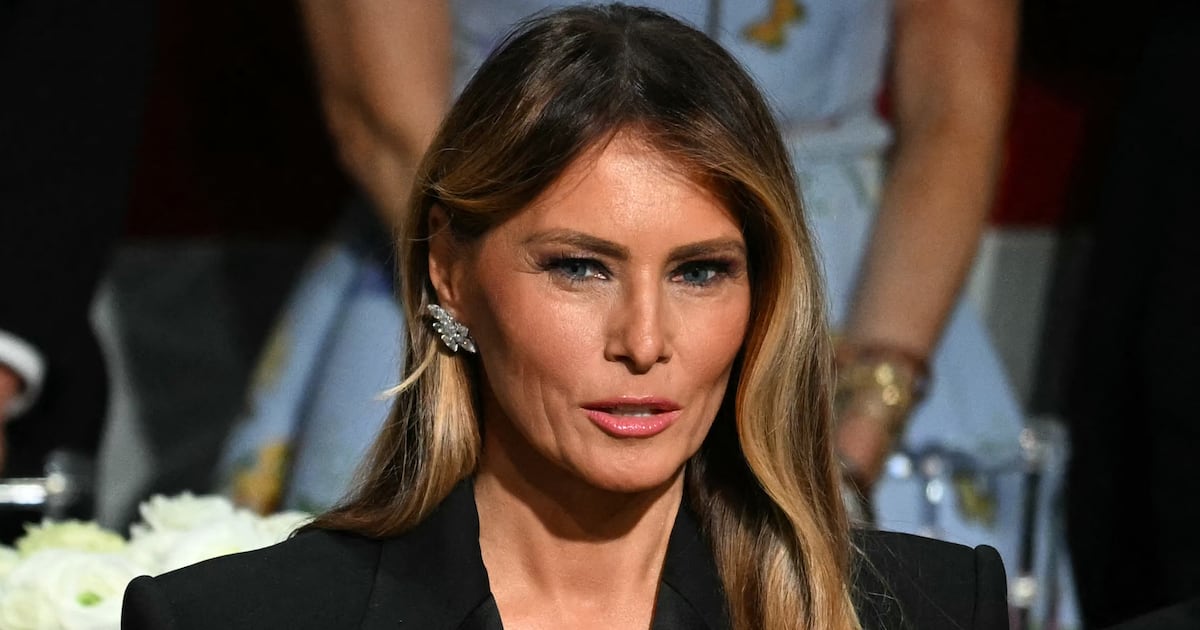Leslie Jones might be one of the most memorable cast members in Saturday Night Live history, but her time there wasn’t always easy. When the show initially hired her in 2014, she came aboard as a writer and struggled to get her pitches accepted. Only months later did she join the cast, and even then, as she noted during a recent NPR interview to promote her new memoir Leslie F*cking Jones, the show often kept her in the same roles: In her words, “either I’m trying to love on the white boys or beat up on the white boys, or I'm doing something just, like, loud.”
When she was first coming aboard as a writer, Jones recalled, Kenan Thompson and Chris Rock both assured her that Michaels wouldn’t let her walk away. Speaking with Tonya Mosley, she recalled that she wasn’t worried about getting upstaged by other comics on the show; it was the writing that wasn’t easy, because she came from a stand-up background rather than sketch comedy. It took time to learn “that when you’re writing a joke in a sketch, it has to have foundation. It has to have a story. It has to have character names. It has to have, you know, a flow.”
Mosley noted that Jones’ book discusses how the show treated Jones, in Mosley’s words, “like a caricature” once she made it into the on-screen cast. Jones didn’t dispute that notion, although she did perhaps temper it with some context.
ADVERTISEMENT
“I've been doing comedy so long, it's like, I know what I am,” Jones said. “... At SNL, they take that one thing and they wring it. They wring it because that’s the machine. So whatever it is that I'm giving that they’re so happy about, they feel like it’s got to be that all the time, or something like that.
“So it was, like, a caricature of myself, you know what I’m saying?” Jones continued. “So it was like, now either I’m trying to love on the white boys or beat up on the white boys, or I’m doing something just, like, loud. I knew once I did these things, though—I knew it was going to happen, because I know the power of them.”
During her five years on SNL, Jones left a big mark. The oldest cast member the show has ever hired, she earned three Emmy nominations during her run on the show and will forever remain unforgettable for her characters’ big, boisterous personas. Interestingly enough, James Andrew Miller—co-author of Live from New York, a venerated oral history of the show—once told Vanity Fair that compared to other cast members, Jones’ legacy didn’t boil down to one oft-repeated line delivery or character. “That’s more of a compliment,” he said. “It means she has her own personality.”
As Mosley noted, Saturday Night Live has had a somewhat spotty history when it comes to Black performers—“there’s always just one,” she said, “and they always do have their signature, and then they leave.”
At the same time, Jones noted, the show tends to pigeonhole many of its performers, regardless of their race. She recalled an anonymous retired cast member once told her as much, and she pointed to fellow SNL alum Taran Killam as an example. “Taran wanted to do so much other stuff,” she recalled. “But they would only have Taran in those very masculine and singing and stuff. And I was like, oh, yeah… This is the machine, you know?”
Killam, whom the SNL let go unexpectedly alongside fellow cast member Jay Pharoah in 2016, once described the show as a “competitive, exhausting environment” following Seth Meyers’ departure. Speaking with The Daily Beast in 2017, he said his unexpected exit was “definitely” a blessing in disguise. “When a divine entity closes a door, a window opens,” he said. “And certainly I had multiple open windows. And a set of French doors.” All told, he said, “SNL presented me with some of the greatest creative moments and strongest relationships that I’ll ever have in my entire life. And I am eternally grateful to the show. But at the same time, there’s also low points and that’s just life.”
Speaking about her own departure on NPR, Jones recalled the moment as bittersweet: “Because it really is a training, you know? For some people, it should be the springboard.”
The comedian later emphasized her “love” for Lorne Michaels, adding that “in his defense, I used to always be like, ‘He’s a puppet master. So he has to make the cast happy, he has to make the writers happy. He has to make the WGA happy. He has to make NBC happy. Then he has to make a family in Omaha, Nebraska, who's watching the show happy.’ Imagine the strings that have to go out to him? So it’s a machine that has to work, you know?”








